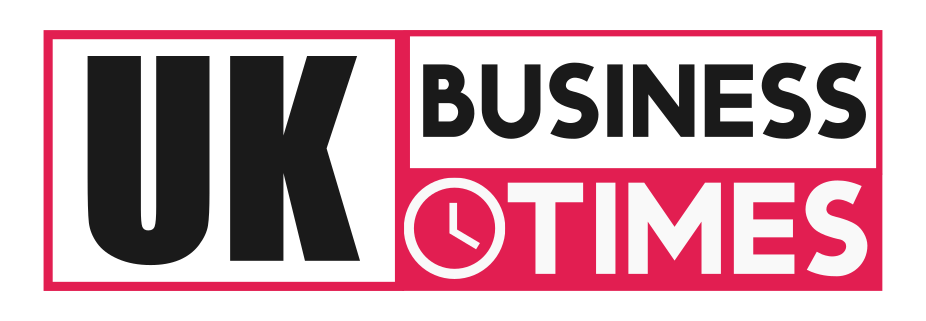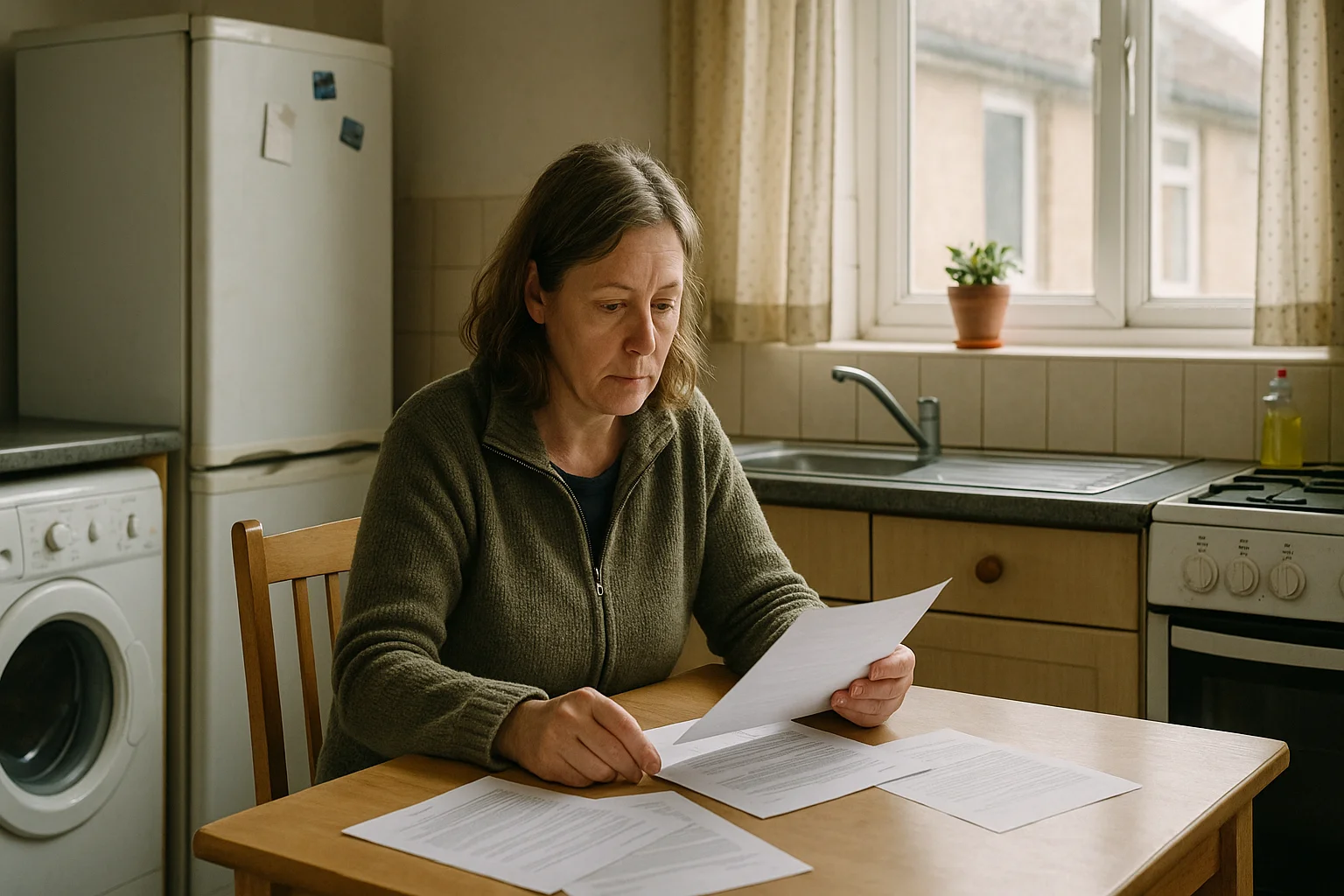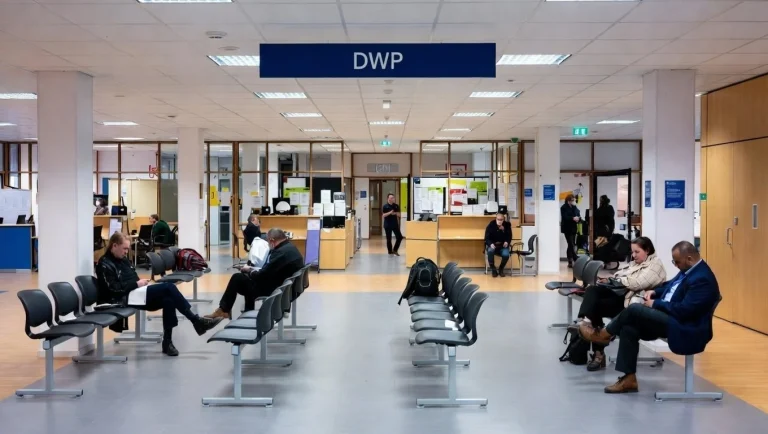For many, replacing a broken washing machine or fridge is a minor inconvenience. But for families already facing financial pressure, it can feel like a crisis. In the UK, essential appliances are more than luxuries, they are daily necessities that impact hygiene, food safety and quality of life.
White goods grants are designed to offer practical financial support for essential items like fridges, cookers and washing machines. These grants can help those on low incomes, facing major life transitions or recovering from hardship regain independence and manage everyday life with dignity.
Let’s explore who qualifies, how to apply, where to find support, and how to maximise your chances of success.
Why Are White Goods Grants Important for Struggling Households?
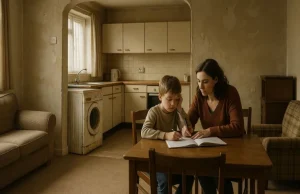
White goods, such as washing machines, cookers and fridges, form the backbone of day-to-day home life. Without them, families may struggle with basic tasks like cooking meals or washing clothes, leading to increased expenses and reduced quality of life.
For those on benefits or with no savings, replacing such appliances is often impossible without help.
These grants are vital because:
They Enable Hygiene and Health
Washing machines reduce the need for costly laundrettes, and fridges prevent food spoilage, protecting families from health risks. Cookers allow for affordable, home-prepared meals rather than unhealthy and expensive takeaways.
They Support Vulnerable Groups
People with disabilities, elderly individuals and parents with young children often rely on appliances to manage their daily routines independently.
For example, a washing machine can mean the difference between independence and reliance on carers.
They Prevent Further Financial Crisis
Replacing white goods without financial support can force families into debt or loan agreements with high interest rates. Grants help avoid that.
Who Qualifies for a White Goods Grant in the UK?
Eligibility criteria for white goods grants vary depending on the organisation or council providing the support. However, most schemes target people experiencing financial hardship or specific life situations.
Common Eligibility Criteria
- Receiving means-tested benefits such as Universal Credit, Income Support or Pension Credit
- Low household income with no access to savings
- Recently rehoused after homelessness or escaping domestic abuse
- Living with disabilities or having a household member with a serious illness
- Families with young children
Additional Considerations
Some grants are only available to residents of specific local authorities. Others may focus on certain groups, such as care leavers, older people, or refugees. Some grants require a support worker or referral from an organisation like Citizens Advice or Shelter.
It’s also important to understand that eligibility does not guarantee approval. Each grant application is assessed individually.
What Types of Appliances Are Usually Covered by a White Goods Grant?
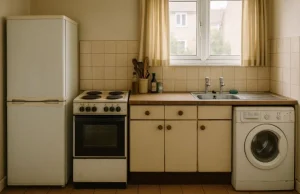
White goods grants generally cover large, essential home appliances that are considered crucial for maintaining a minimum standard of living.
Commonly Funded Appliances
- Electric or gas cookers
- Fridges and fridge-freezers
- Washing machines
- Tumble dryers (where justified)
- Microwaves (in some cases)
- Dishwashers (especially for disabled applicants)
Coverage Limitations
Some schemes only provide specific items, while others offer a set financial amount to purchase what you need. In certain situations, grants are provided as vouchers to be redeemed at approved suppliers rather than cash.
Examples of Covered Items and Justification
| Appliance | Why It's Funded | Common Beneficiaries |
|---|---|---|
| Cooker | Enables home cooking and savings | Families, elderly |
| Washing Machine | Essential for hygiene, especially for children | Households with health concerns |
| Fridge-Freezer | Preserves food, reduces waste | Low-income households |
| Tumble Dryer | Helps where space or health limits drying | Disabled or high-dependency cases |
| Microwave | Alternative in emergencies | Recently rehoused individuals |
How to Apply for White Goods Grant in the UK?
Applying for a white goods grant involves several steps, and although each provider has slightly different processes, the general structure remains similar.
Step-by-Step Application Process
- Identify the Right Grant: Use platforms like GOV.UK’s Find a Grant service. You can search by location, eligibility and specific needs.
- Check the Eligibility Criteria: Carefully read the specific conditions set by the provider. Some grants are only available for individuals in receipt of certain benefits or facing exceptional circumstances.
- Gather Necessary Documents
- Proof of income or benefits
- Identification
- Evidence of need (such as broken appliance)
- Referrals or support letters, if needed
- Complete the Application Form: Applications are usually completed online, though some councils may require paper forms.
- Submit the Application: Ensure all required documentation is submitted to avoid delays. Some schemes allow support workers to submit on your behalf.
- Wait for a Decision: Response times vary from a few days to several weeks depending on the organisation and volume of applications.
Digital Portals
- GOV.UK Find a Grant requires a GOV.UK One Login.
- Turn2Us supports searches for over 1,500 charitable grants.
- Local Councils often have dedicated welfare assistance pages.
Which Organisations and Charities Offer White Goods Grants?

There are several national and local organisations across the UK offering support with household essentials. Each has its own criteria and funding process.
Main Providers
- Turn2Us: Offers a large searchable database of UK grants based on personal situation and postcode.
- Glasspool Charity Trust: Provides one-off grants through professional referrals to people facing unexpected hardships.
- Family Fund: Supports families raising disabled or seriously ill children by offering grants for appliances and other needs.
- Local Authorities: Councils often run Local Welfare Assistance Schemes which include white goods in their emergency help provision.
- Discretionary Assistance Fund (Wales) and Scottish Welfare Fund: Country-specific schemes for low-income households in crisis.
Retailer Partnerships
Some grants operate in partnership with appliance retailers. Instead of money, applicants receive appliances directly or are given vouchers to be used at partner stores.
Can You Get a White Goods Grant If You’re on Universal Credit?
Being on Universal Credit or other legacy benefits can make you eligible for certain types of financial assistance, including:
Budgeting Advances and Loans
- Budgeting Advance (Universal Credit): A short-term interest-free loan repaid through benefit deductions. Used for emergency household costs, including white goods.
- Budgeting Loan (Legacy Benefits): Available to those on Income Support, Pension Credit or Income-based Jobseeker’s Allowance. Works similarly to Budgeting Advance.
Key Differences from Grants
- Must be repaid
- No credit checks
- Still helpful for urgent replacements when grants aren’t available
Use with Grants
These loans can sometimes be used alongside grants, especially where the grant only covers part of the appliance cost or if multiple items need replacing.
How Much Funding Can You Expect from a White Goods Grant?
The amount varies depending on the provider, item required and your level of need. While some cover the entire cost, others may offer partial support.
Typical Funding Ranges
| Provider | Appliance Covered | Approximate Amount | Form of Support |
|---|---|---|---|
| Local Authority | Cooker, fridge | £200 - £300 | Cash or retailer voucher |
| Glasspool | Varies | £150 - £500 | Item or payment |
| Family Fund | For children’s needs | Up to £1,500 in some cases | Direct item funding |
Factors Affecting Amount
- Household size
- Current income
- Urgency of the situation
- Cost of the item
- Availability of other support
Some grants may also ask for small contributions, especially if the item cost exceeds the capped limit.
Where to Find Local Help for White Goods in Your Area?
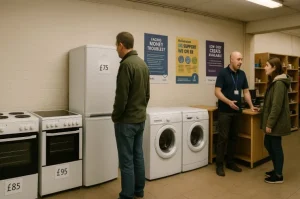
Local councils remain one of the most accessible sources of white goods support. Most operate Welfare Assistance Schemes to offer practical help to residents in crisis.
How to Search Locally?
- Use search terms like “[Your Council] white goods grant” or “[Town Name] local welfare assistance”
- Visit council websites and navigate to Housing or Benefits sections
- Contact Citizens Advice for help locating support in your area
Alternative Options
- Freegle or Freecycle: Local donation sites for free appliances
- Facebook Marketplace: Check for community support groups offering free items
- Local charities and churches: Some offer white goods on a case-by-case basis
Be aware that free items may need collection, and availability can be inconsistent.
How Jane from Manchester Got a Free Cooker Through a Charity Grant?
Jane, a single mother of two from Manchester, found herself unable to cook after her electric cooker broke. Already receiving Universal Credit and struggling with energy bills, replacing the cooker was financially impossible.
She approached her local Citizens Advice Bureau, who helped her apply through the Turn2Us platform.
Within days, she was connected to a local funder who supplied a voucher redeemable for a cooker at a nearby appliance store. A week later, Jane had a fully installed cooker at no cost.
This example highlights how support agencies, combined with the right online tools, can provide real, fast solutions to families in need.
What Should You Prepare Before Applying for a White Goods Grant?
Being prepared with the right information and documents can significantly improve your chances of a successful grant application.
Documents You May Need
- Proof of benefit entitlement or income
- Proof of ID and residency
- Letter explaining your situation or hardship
- Quote or confirmation of appliance need
- Support letter from a social worker or charity representative
Application Tips
- Be honest and specific about your need
- Mention any health or safety risks
- Clearly explain how the item will improve your situation
- Apply to multiple sources if allowed
What Are the Alternatives If You’re Denied a Grant?
If your application is rejected, there are still several options to explore.
Explore Other Sources of Help
- Budgeting Advance/Loan: As mentioned earlier
- Community Support Funds: Offered by local organisations
- Charity Shops: Some offer reconditioned white goods at low prices
- Interest-free Credit Unions: May offer appliance financing with no interest
Reapply Later
Some grants allow reapplication after a certain period. If your situation worsens or circumstances change, try again.
Conclusion
For many households across the UK, the inability to afford a working cooker or fridge can lead to a chain reaction of challenges, from higher food bills to poor health.
White goods grants offer more than financial relief; they offer dignity, independence and safety.
Whether through your local council, a national charity or a budgeting advance, there are ways to access the help you need. Being proactive, prepared and informed makes all the difference.
Frequently Asked Questions
What are white goods in UK grant schemes?
White goods typically refer to essential household appliances such as cookers, fridges and washing machines.
Can you get help with white goods if you’re not on benefits?
Some schemes may still support those not on benefits if they are in severe financial hardship or specific circumstances like domestic abuse.
How long does it take to receive a white goods grant?
Processing time varies. Some charities respond within a week, while council applications may take a few weeks.
Do I have to pay back a white goods grant?
No, grants do not require repayment. However, budgeting advances and loans from DWP do.
Can I apply for more than one grant?
Yes, but you should check each scheme’s rules. Some restrict multiple applications within a short time.
What if I receive a voucher instead of money?
Vouchers are common and often used to purchase appliances through partner retailers. They function as payment substitutes.
Is there help for white goods in Scotland and Wales?
Yes, the Scottish Welfare Fund and the Discretionary Assistance Fund in Wales provide similar support for eligible residents.
{
“@context”: “http://schema.org/”,
“@type”: “FAQPage”,
“mainEntity”: [
{
“@type”: “Question”,
“name”: “What are white goods in UK grant schemes? “,
“acceptedAnswer”: {
“@type”: “Answer”,
“text”: “White goods typically refer to essential household appliances such as cookers, fridges and washing machines.”
}
},
{
“@type”: “Question”,
“name”: “Can you get help with white goods if you’re not on benefits? “,
“acceptedAnswer”: {
“@type”: “Answer”,
“text”: “Some schemes may still support those not on benefits if they are in severe financial hardship or specific circumstances like domestic abuse.”
}
},
{
“@type”: “Question”,
“name”: “How long does it take to receive a white goods grant? “,
“acceptedAnswer”: {
“@type”: “Answer”,
“text”: “Processing time varies. Some charities respond within a week, while council applications may take a few weeks.”
}
},
{
“@type”: “Question”,
“name”: “Do I have to pay back a white goods grant? “,
“acceptedAnswer”: {
“@type”: “Answer”,
“text”: “No, grants do not require repayment. However, budgeting advances and loans from DWP do.”
}
},
{
“@type”: “Question”,
“name”: “Can I apply for more than one grant? “,
“acceptedAnswer”: {
“@type”: “Answer”,
“text”: “Yes, but you should check each scheme’s rules. Some restrict multiple applications within a short time.”
}
},
{
“@type”: “Question”,
“name”: “What if I receive a voucher instead of money? “,
“acceptedAnswer”: {
“@type”: “Answer”,
“text”: “Vouchers are common and often used to purchase appliances through partner retailers. They function as payment substitutes.”
}
},
{
“@type”: “Question”,
“name”: “Is there help for white goods in Scotland and Wales? “,
“acceptedAnswer”: {
“@type”: “Answer”,
“text”: “Yes, the Scottish Welfare Fund and the Discretionary Assistance Fund in Wales provide similar support for eligible residents.”
}
}
]
}
